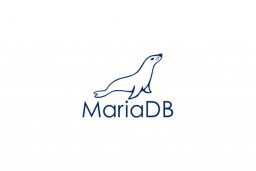
SpreadCoin, a cryptocurrency, has released a “Proof of Bitcoin Node” (PoBN) that proposes using the block chain to fund bitcoin miners and pay anyone wishing to operate a full bitcoin node by reinventing bitcoin mining into Big Data mining. According to a recently-released white paper, the PoBN will help create a block chain Big Data market that will generate billions of dollars and support a secure, decentralized payment system.
Link to CryptoCoinsNews: Developers Propose ‘Proof Of Bitcoin Node’ To Reinvent Bitcoin Mining Into Big Data Mining
The white paper is titled: “Proof of Bitcoin Node, A Mechanism for a Bitcoin Full Node Incentives & Bitcoin Mining Rewards Program.”
The developers are proposing a second layer on top of bitcoin that will link the block chain to APIs and help create a block chain Big Data market.
The developers believe bitcoin could generate as much as $100 billion by 2030.
A Big Opportunity In Big Data
“As bitcoin established and continues to scale, there will be an opportunity for the network to generate its own revenues to sustain its infrastructure,” the developers commented in a statement provided toCCN. “We are aiming for bitcoin miners to add Big Data mining to their current function of verifying and processing transactions, a transition that we hope will begin as soon as 2017.”
Companies seeking to access aggregated smart contract data and other transactions will be able to purchase information via the second layer and have bitcoin miners process data mining requests.
Because the new overlay network will be decentralized, anyone will be able to join it, the developers noted. Those running a full bitcoin node as a service and bitcoin miners – the main bitcoin network components – will be paid all revenues that a new block chain Big Data market generates.
Full bitcoin nodes have declined in number since 2014, the developers noted, falling from more than 10,000 to 6,000. This has created concern of the network’s eventual centralization. The developers cite fewer nodes and the continuous halving of miner rewards as the biggest threats to bitcoin. The halving of mining rewards occurs about every four years and is due next in 2016.
New Revenue Stream For Bitcoin
A data market that surmounts these systemic risks could allow the block chain to support the network financially and maintain low-fee or free transactions permanently for users.
A new bitcoin revenue stream would generate a positive feedback loop for block chain data value because more people will seek to participate in running full nodes and mining. This would improve bitcoin security and make its use for contract settlement even more attractive.
The fintech sector has recognized the block chain’s potential uses, such as replacing traditional bank settlement processes and the recording of property titles. As the fintech sector implements these uses, data analytics would become the next area of need.
The PoBN will provide a mechanism to verify the running of full nodes. PoBN will require node holders to use collateral to create such a mechanism. The new bitcoin layer will pay a monthly fee to those participating in return for following the rules. The monthly fee could grow to substantial sums as the data market expands.
The developers believe the incentives will motivate thousands to create between 3,000 and 6,000 full bitcoin nodes in the first five years of the new network becoming operational.
There is no limit on the numbers of nodes to be funded, but available revenues would influence the total numbers. The result would be a dynamic market enabling the creation of more nodes as the block chain data services market grows.
Once a node network develops, the decentralized second layer (which initially operates on the Spread ServiceNode network) becomes the largest single source of anonymized block chain data that will be accessible to anyone who seeks to purchase data analytics.
The project will introduce a decentralized exchange to facilitate payments in multiple currencies to access the data market. Full node owners will be paid in BTC, DOGE, DASH, Ether, LTC, $USD or SPR, with the possibility of more digital or fiat currencies.
Investment In Block Chain Proliferates
Media reports have noted that governments, VCs and banks are investing in block chain technology. TheWorld Economic Forum estimated that smart contracts on the block chain could be 10% of global GDP by 2027.
The bitcoin network, by developing its own commercial block chain, could build its own revenue model to support an infrastructure making the block chain desirable for the settlement of contracts.
IDC, the research company, noted global IT spending already approaches $4 trillion and Big Data will generate between $100 billion and $120 billion by 2020.
The global value of Big Data as a service could reach between $500 billion and $1 trillion by 2027, with bitcoin accounting for a significant share of the revenue.
Interest in Big Data continues to grow as more types of business activity – such as activity related to homes, cars appliances and utilities – moves online.
Global and regional data will be needed for transactions, contracts and Internet-connected devices to prevent the risk of missing opportunities and wasting resources.
Why Big Data Will Be Needed
Big Data analytics will be an important way to track activity as more devices transact services.
Block chain transactions and smart contract data analytics will become critical to allowing organizations to make informed decisions that affect profitability and survival.
The data within the bitcoin block chain will be worth trillions of dollars as bitcoin takes over more aspects of banking, remittances, land registration, micropayments and other global financial services.
The block chain ledger data could be worth up to 20% of the Big Data market by 2030 and could produce up to $100 billion in annual revenue for those seeking to mine bitcoin or operate a full node, the developers noted. The revenue potential surpasses that which Visa, MasterCard and PayPal generate combined.
The block chain contains enough value to secure a decentralized future that allows bitcoin to outperform centralized payment systems with fewer systemic risks than it currently faces, the developers noted.
For more information about MoData offerings click here




